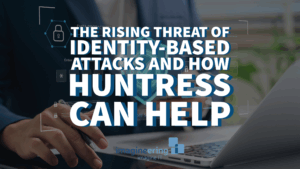In today’s digital age, cybersecurity is more critical than ever. As businesses and individuals rely heavily on digital platforms, the risks of cyber threats continue to evolve. New cyberattack data shows that 2022 brought a 38% increase in global cyber attacks compared to 2021. In this blog post, we’ll explore common cybersecurity mistakes and provide practical tips on how to avoid them.
1. Weak Passwords: One of the most common mistakes is using weak passwords or reusing them across multiple accounts. Avoid using easily guessable passwords like “123456” or “password.” Instead, create strong passwords with a mix of uppercase and lowercase letters, numbers, and symbols. Consider using a reputable password manager, like Keeper, to generate and store complex passwords securely.
2. Lack of Software Updates: Failing to update software and operating systems regularly leaves vulnerabilities that cyber attackers can exploit. Keep your software, apps, and devices up to date with the latest security patches and updates. Enable automatic updates whenever possible to ensure timely protection against known vulnerabilities.
3. Ignoring Phishing Attempts: Phishing attacks remain a prevalent cybersecurity threat. Cybercriminals use deceptive emails, messages, or websites to trick individuals into revealing sensitive information or downloading malicious software. Be cautious of unsolicited emails, especially those requesting personal information or urging urgent action. Verify the sender’s legitimacy before clicking on any links or attachments.
4. Not Using Multi-Factor Authentication (MFA): A lack of multi-factor authentication leaves accounts vulnerable to unauthorized access, even with strong passwords. Enable MFA whenever available, as it adds an extra layer of security by requiring a second form of verification, such as a one-time code sent to your phone or email.
5. Neglecting Regular Backups: Failure to back up data regularly increases the risk of data loss due to ransomware attacks, hardware failures, or accidental deletion. Implement a robust backup strategy that includes regular backups of essential data to secure locations, such as cloud storage or external hard drives. Test your backups periodically to ensure they are accessible and reliable.
6. Sharing Sensitive Information Carelessly: Avoid sharing sensitive information, such as passwords, financial details, or personal data, through unsecured channels or with unverified parties. Use encrypted communication tools for sensitive conversations and be cautious of sharing information on public or unsecured Wi-Fi networks.
7. Overlooking Employee Training: Cybersecurity is a collective responsibility that involves educating employees about potential threats and best practices. Provide regular cybersecurity training sessions to raise awareness about phishing scams, password hygiene, data protection policies, and incident response procedures.
By avoiding these common cybersecurity mistakes and implementing proactive security measures, individuals and businesses can significantly reduce the risk of falling victim to cyber threats. Stay vigilant, stay informed, and prioritize cybersecurity to safeguard your digital assets and privacy.
The 7 Most Common Security Holes
You Can Fix Right Now

The Rising Threat of Identity-Based Attacks—and How Huntress Can Help
Cyberattacks are more common—and more sophisticated—than ever. In this post, we explore why cybersecurity should be a priority for every organization and how Huntress delivers the kind of real-time detection and response businesses need to stay protected.

Top 5 Identity Threats You Can’t Afford to Ignore
Securing sensitive information has become paramount for businesses of all sizes. Let us help you build a secure, resilient digital environment where your business can thrive without fear of compromise.

Cybersecurity in Remote Work: Essential Best Practices to Safeguard Your Data
While working from the comfort of your home or a café can be a luxury, it comes with its own set of security challenges that need diligent management. Here are the best practices for maintaining cybersecurity while working remotely







